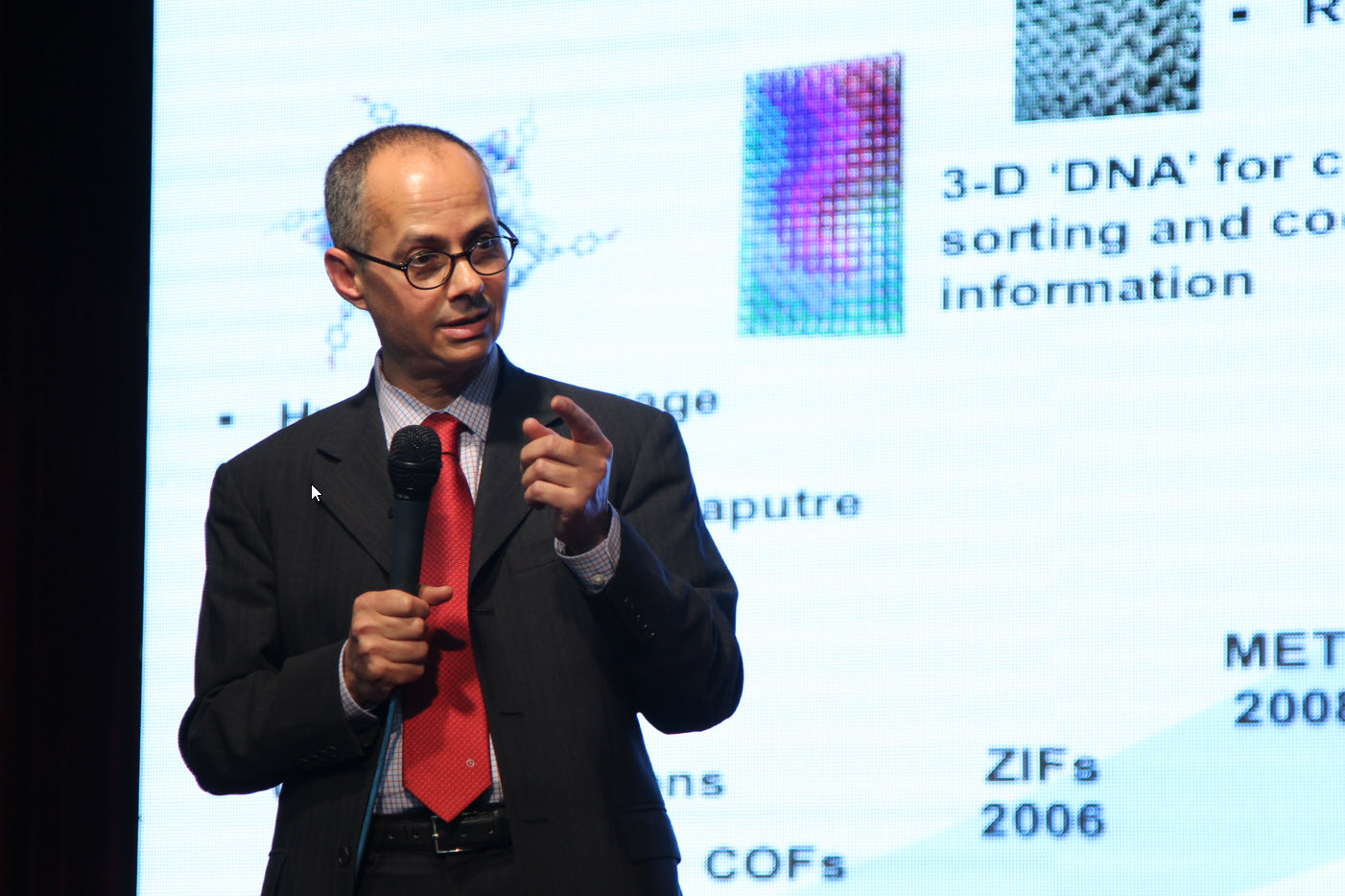Mustafa Prize and the MOF Pioneer’s Scientific Journey


Seyed Mohammad Hossein Mirhashemi, Director of Communication and Outreach at Mustafa(pbuh) Science and Technology Foundation, in an interview with Mehr news agency, discussed the scientific path and notable contributions of Omar Yaghi, laureate of the 2025 Nobel Prize for Chemistry and a 2015 Mustafa(pbuh) Prize laureate.
MSTF Media reports:
Mirhashemi stated that “the Mustafa(pbuh) Prize, one of the most prestigious scientific and technological awards in the Islamic world, was established to honor outstanding researchers in the Islamic world.”
He added that the idea for the Prize was first proposed at Pardis Technology Park in 2011, then approved by the Supreme Council of the Cultural Revolution in 2012, and officially launched that same year. The inaugural award ceremony, held in 2015, celebrated two eminent scientists: Professor Jackie Yi-Ru Ying from Singapore and Professor Omar Yaghi from Jordan.
Highlighting that only a few scientists are bestowed the title of “father” of their field, Mirhashemi noted that Yaghi, one of these scientists, is globally recognized as “the father of metal-organic frameworks.”
His scientific journey began in an extraordinary way. Born in a Palestinian refugee camp in Jordan, Yaghi is originally from Gaza. As a teenager, he left Jordan to pursue his education in the United States. He studied at New York University, completed postdoctoral training at Harvard University, and later taught at several universities before reaching the peak of his academic career at the University of California, Berkeley.
Yaghi’s pioneering research in crystalline frameworks began in the early 1990s and led to the discovery of Metal–Organic Frameworks (MOFs) in 1995, a breakthrough that transformed the field.
“In his acceptance speech at the 2015 Mustafa(pbuh) Prize award ceremony, Yaghi stated that he continues his scientific journey with the same passion that he had for chemistry when he was ten years old,” Mirhashemi added. “Recently, Yaghi has said that when he first started in this field he didn’t set out to solve world climate issues, but now his findings address exactly those challenges.”
In fact, Yaghi was initially mesmerized by the aesthetics of chemistry. In a recent interview with the Nobel Prize he recalled that when ten years old, his fascination with chemistry and his decision to pursue it was based purely on the beauty of the molecules. It was only later that he realized MOFs can solve a great deal of world issues, from drought to energy.
MOFs: From Medicine to the Environment
Yaghi’s synthesized MOFs and innovative methods have had wide applications such as capturing carbon dioxide from industrial chimneys, storing hydrogen and methane for clean fuels, extracting drinking water from air, and accelerating chemical reactions with high efficiency.
“These achievements demonstrate the powerful bridge between fundamental research and real-world technological innovation,” Mirhashemi maintained.
Yaghi’s design and synthesis of porous materials has also had significant impacts on the advancement of clean energy, environmental technologies, and medical applications such as drug delivery and medical imaging.
“His work is a perfect example of how a fresh outlook in science can bring about a better future,” Mirhashemi added.
Mirhashemi stated that these materials are like sponges whose Nano holes embed various substances such as carbon dioxide or drug compounds. This feature enables scientists to engineer materials that can transfer drugs to specific locations in the human body, act as catalysts in chemical reactions, or capture CO2.
When asked about the process through which the Mustafa(pbuh) Foundations identifies distinguished scientists from Islamic countries, Mirhashemi explained that the process begins about 18 months before each edition of the award ceremony, whereby a call for nominations is sent to prominent scientific institutions and researchers around the world, particularly in Islamic countries. The institutions then introduce their prominent scholars with notable contributions to science.
“A specialized scientific committee is also tasked with discovering leading scientists,” Mirhashemi added. “Once thousands of researchers are identified, a rigorous screening process begins, during which their documents are thoroughly reviewed by various expert committees.”
In the latest edition of the Mustafa(pbuh) Prize, scientists residing in Islamic countries and those residing outside Islamic countries were evaluated in two separate categories. Ultimately, the three laureates were chosen from among five finalists.
The Prize is awarded in three main categories: Basic and Engineering Sciences, Information and Communication Science and Technology, and Life and Medical Sciences.
According to Mirhashemi, “Mustafa(pbuh) Prize, as a symbol of scientific excellence in the Muslim world, is capable of identifying outstanding scientists with great potential who are very likely to win prestigious scientific accolades, such as the Nobel Prize, later in their career.”
“Compared to renown science awards such as the Nobel Prize which has been awarded continuously since 1901, the Mustafa(pbuh) Prize is relatively young, only about a decade old,” Mirhashemi said. “Nevertheless, it has already secured a special place among international scientific awards.”
Source: Mehr News Agency